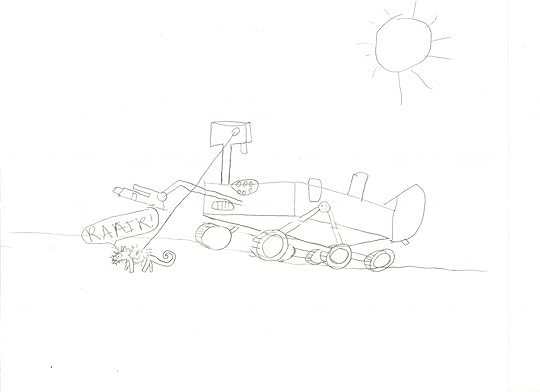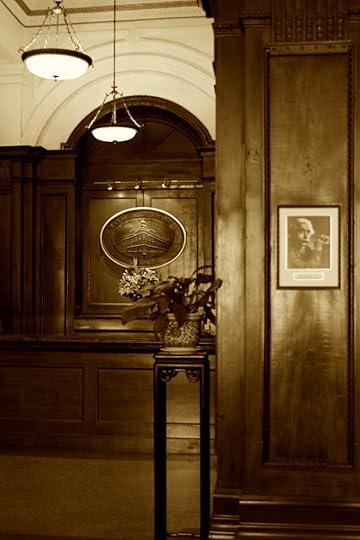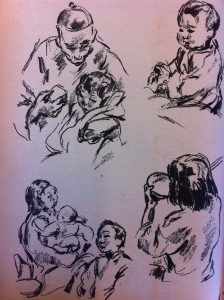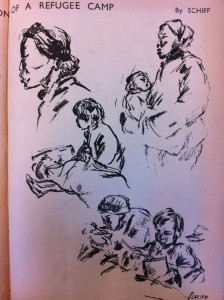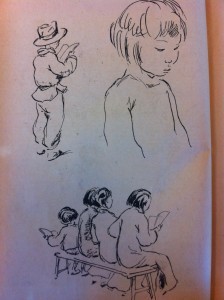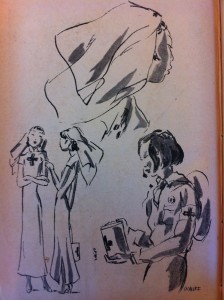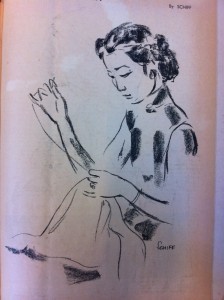Gregory Crouch's Blog, page 31
August 27, 2012
Aviation photos: Chinese Civil War pics 3
Continuing this week’s run of CNAC-related photos from Steve Michiels, son of CNAC pilot Joe Michiels. The top photo enlarges beautifully.
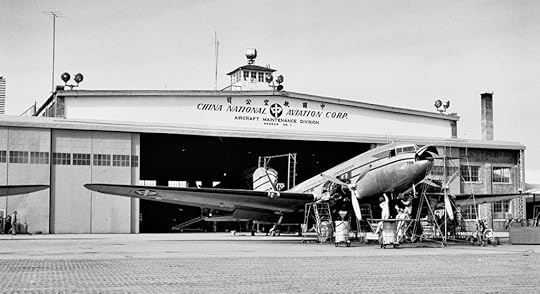
CNAC DC-3 undergoing maintenance at Lunghwa Airport, late 1940s
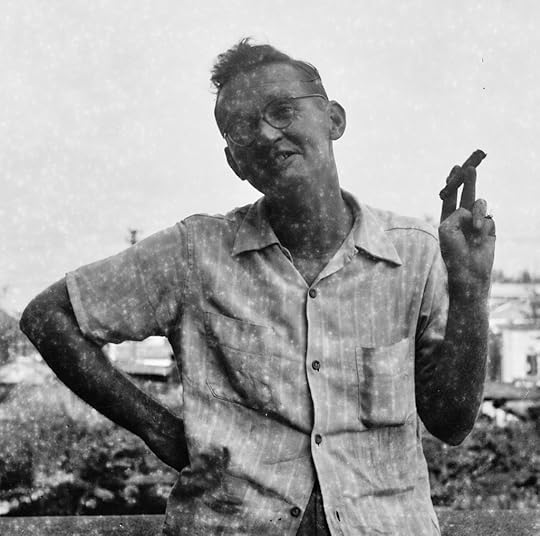
CNAC mechanic Henry “Red” Schaus in Shanghai, 1947
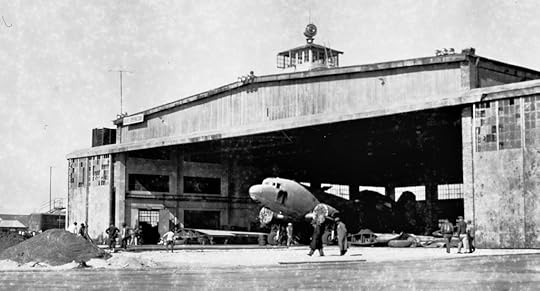
Dismantled DC-3 or C-47, late 1940s
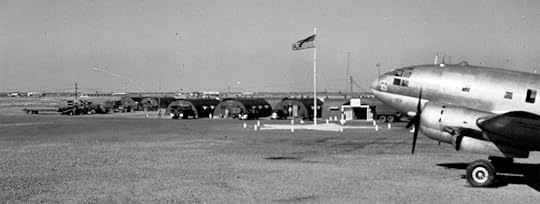
C-46, possibly on the US Navy airfield at Kiangwan in Shanghai, 1947 or 48
Aviation porn: Chinese Civil War pics 3
Continuing this week’s run of CNAC-related “aviation porn” from Steve Michiels, son of CNAC pilot Joe Michiels. The top photo enlarges beautifully.

CNAC DC-3 undergoing maintenance at Lunghwa Airport, late 1940s

CNAC mechanic Henry “Red” Schaus in Shanghai, 1947

Dismantled DC-3 or C-47, late 1940s

C-46, possibly on the US Navy airfield at Kiangwan in Shanghai, 1947 or 48
1940s Aviation pictures, in color! Chinese civil war pics 2
Here’re some full color aviation pictures to start the week, again courtesy of Steve Michiels.
All were taken by his father, most in 1947.

CNAC C-46 in Kunming, late 1940s

Two CNAC stewardesses at the door of a C-46, late 1940s

Loading a C-46 with rice for an air drop, probably to the Nationalist Army, late 1940s
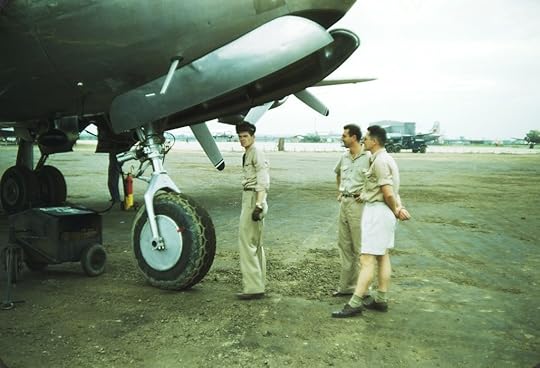
Bill Sturgess and Pat Emory under the nose wheel of a DC-4

Fueling a C-46 somewhere in the Chinese interior, late 1940s
1940s Aviation porn, in color! Chinese civil war pics 2
Here’s some full color aviation porn to start the week, again courtesy of Steve Michiels.
All were taken by his father, most in 1947.

CNAC C-46 in Kunming, late 1940s

Two CNAC stewardesses at the door of a C-46, late 1940s

Loading a C-46 with rice for an air drop, probably to the Nationalist Army, late 1940s

Bill Sturgess and Pat Emory under the nose wheel of a DC-4

Fueling a C-46 somewhere in the Chinese interior, late 1940s
August 26, 2012
pictures of CNAC in the Chinese Civil War, #1
These photos come from Steve Michiels, son of CNAC pilot Joe Michiels. Steve has been tremendously supportive of China’s Wings, for which I’m very grateful. He recently mailed me a disk with about 20 high resolution photo scans, and I’ll feed them onto the site in the coming days, three at a time.
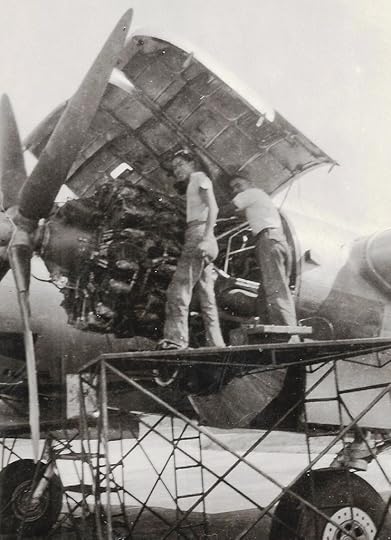
CNAC mechanics at work on a C-46, 1947
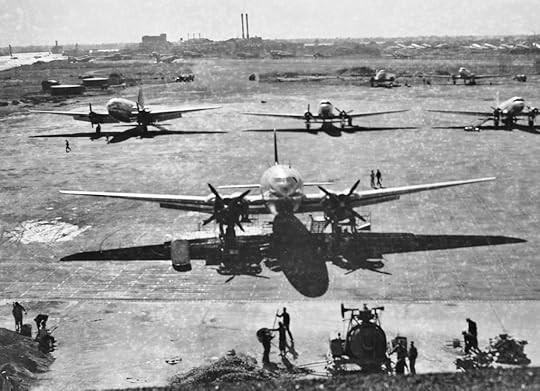
Two CNAC C-46s and two DC-3s or C-47s on the tarmac, 1946 or 1947. (And a whole lot of others in the background.)
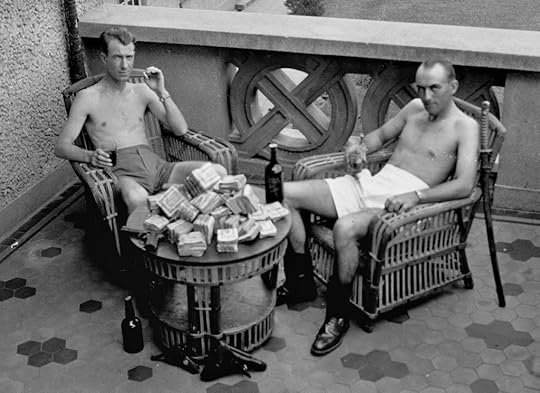
Oliver Glenn and Bill Sanford and a huge pile of Chinese money, Shanghai, 1947
CNAC in the Chinese Civil War, pics 1. (AKA “aviation porn,” first of a run)
These photos come from Steve Michiels, son of CNAC pilot Joe Michiels. Steve has been tremendously supportive of China’s Wings, for which I’m very grateful. He recently mailed me a disk with about 20 high resolution photo scans, and I’ll feed them onto the site in the coming days, three at a time.

CNAC mechanics at work on a C-46, 1947

Two CNAC C-46s and two DC-3s or C-47s on the tarmac, 1946 or 1947. (And a whole lot of others in the background.)

Oliver Glenn and Bill Sanford and a huge pile of Chinese money, Shanghai, 1947
August 24, 2012
Curiosity Killed the Cat — by Ryan Crouch
August 14, 2012
Shanghai glamour in the Astor House
A photographer friend, Robert Cassidy, recently emailed these photos he took in Shanghai’s famous Astor House Hotel, the hotel in which Moon Chin completed the deal that led to him leaving CNAC and becoming operations manager of Central Air Transport Corporation, CATC. (A scene described between pages 372-375 of China’s Wings.)
Aside from Moon Chin, a host of famous people stayed in the Astor House during its heyday, among them former U.S. President Grant, Charlie Chaplin, Albert Einstein, Bertrand Russell, Edgar Snow, and Guglielmo Marchese Marconi. It’s a strange and beautiful old place, and I enjoyed a drink or two in the hotel cafe while taking notes for China’s Wings during my research trip to China in 2005.
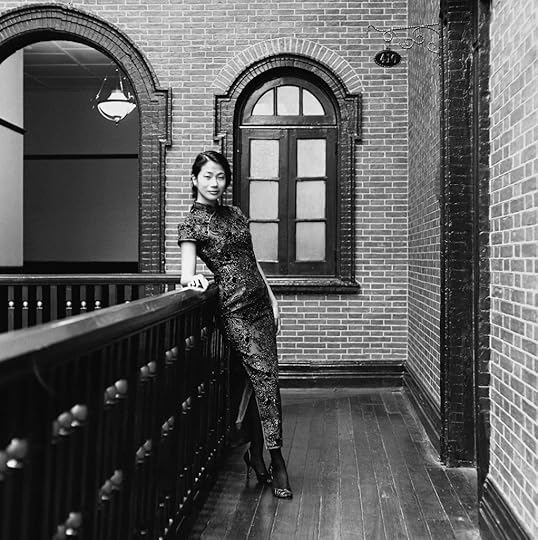
Shanghai glamour in the Astor House
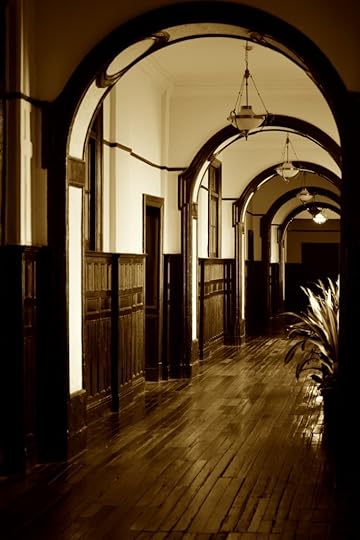
Astor House Hallway
July 24, 2012
Lisa See, Shanghai Girls, and China’s Wings
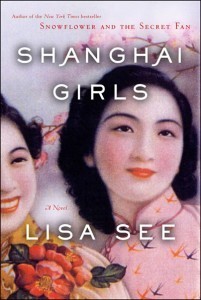 I finished Lisa See’s Shanghai Girls on a Houston-bound airplane last week. I greatly enjoyed the novel, and I got a huge kick out of her treatment of the two “Bloody Saturday” bombings in Shanghai on August 14, 1937 (which killed 1,740 civilians, most of them Chinese refugees). Reading her account of the bombs that fell between the Cathay and the Palace Hotels where Nanking Road meets the Bund (pages 50-54 of Shanghai Girls), I was certain we’d read the same sources, and sure enough, in her acknowledgments section, she mentions Hallett Abend, the New York Times correspondent who covered the bombing, along with Stella Dong and Harriet Sergeant, both authors of books on Shanghai. (Stella Dong, Shanghai: The Rise and Fall of a Decadent City, 1842-1949 and Harriet Sergeant, Shanghai).
I finished Lisa See’s Shanghai Girls on a Houston-bound airplane last week. I greatly enjoyed the novel, and I got a huge kick out of her treatment of the two “Bloody Saturday” bombings in Shanghai on August 14, 1937 (which killed 1,740 civilians, most of them Chinese refugees). Reading her account of the bombs that fell between the Cathay and the Palace Hotels where Nanking Road meets the Bund (pages 50-54 of Shanghai Girls), I was certain we’d read the same sources, and sure enough, in her acknowledgments section, she mentions Hallett Abend, the New York Times correspondent who covered the bombing, along with Stella Dong and Harriet Sergeant, both authors of books on Shanghai. (Stella Dong, Shanghai: The Rise and Fall of a Decadent City, 1842-1949 and Harriet Sergeant, Shanghai).
The Bloody Saturday bombings are on pages 96 and 97 of China’s Wings, and Hallett Abend is the author of the two New York Times articles I cited in my endnotes (along with nods to Walter “Foxy” Kent, a CNAC pilot who wrote an article for The Atlantic that describes the bombing, Percy Finch, Rhodes Farmer, Florence Allison’s diary, and several contemporary photos). Ms. See and I latched onto some of the same details — the silence after the bombing and the slow return to life, the tinkle of glass falling to the sidewalk from the hotel windows, the shattered body part, and unimaginable carnage… if Ms. See has made any historical error, I think it’s in the amount of time that she has pass between the Nanking Road bombing and the bombs that hit The Great World Amusement Building at the corner of Edward the VII Avenue and Tibet Road. She has Pearl, her heroine, hear the second bombing “a minute or two later.” I think closer to 15 minutes passed between the two events.
But that’s a minor quibble, and in no way undermines the essential truth of how she described the event in her novel — which I wholeheartedly recommend.
July 12, 2012
Scenes from a Shanghai refugee camp, by Schiff, December 1937
Last week, reading and taking notes for a story about the Battle of Shanghai at the UC Berkeley library, I was struck by these sketches of a Chinese refugee camp, the camp school, Chinese nurses in a hospital, and a Chinese woman working in support of the war effort, all drawn by Schiff, the renowned Shanghai cartoonist, that appeared in the China Weekly Review toward the end of 1937. Enjoy.

